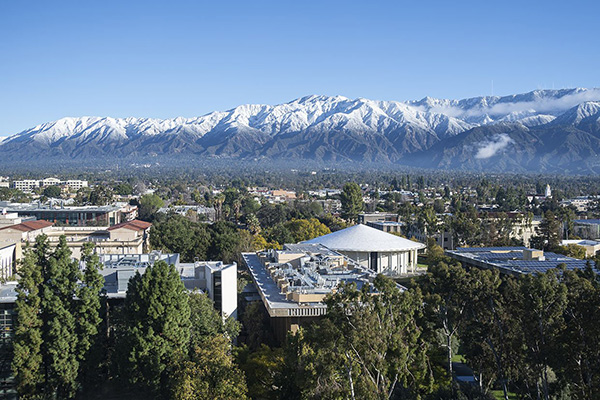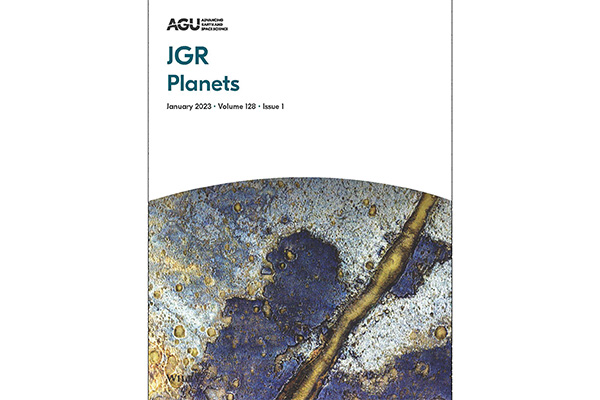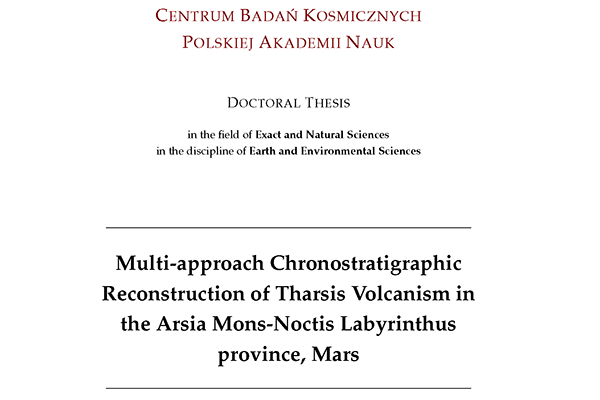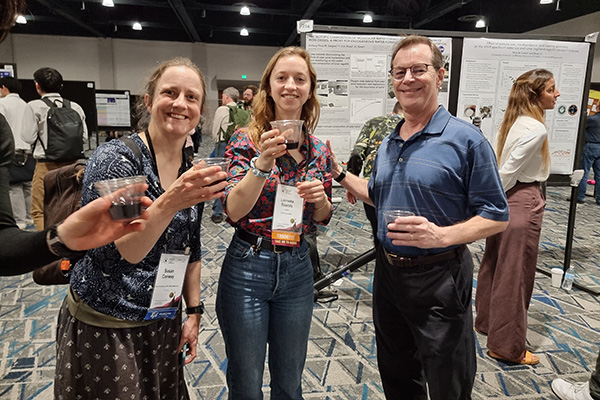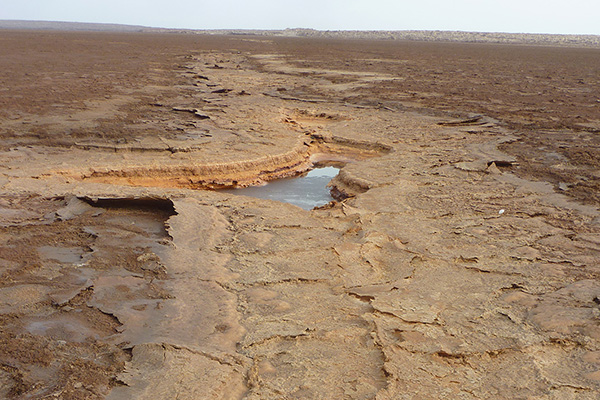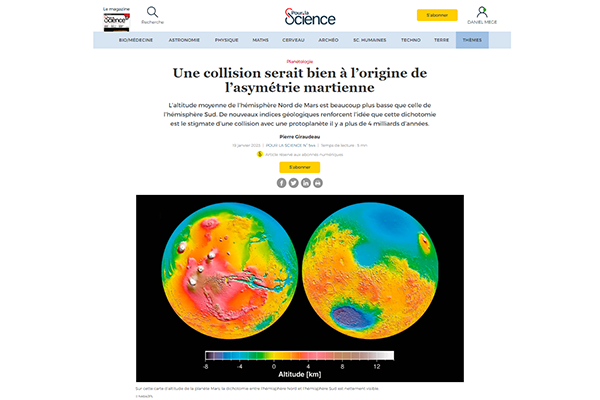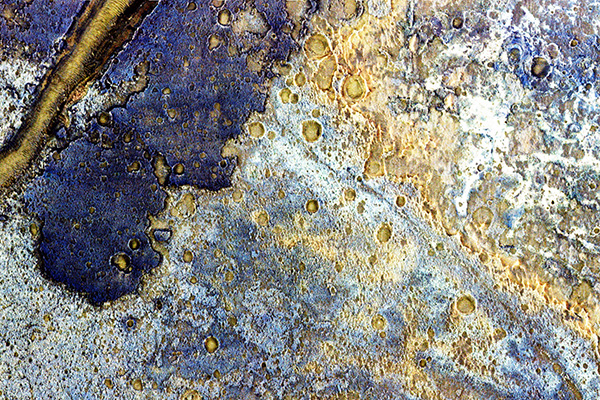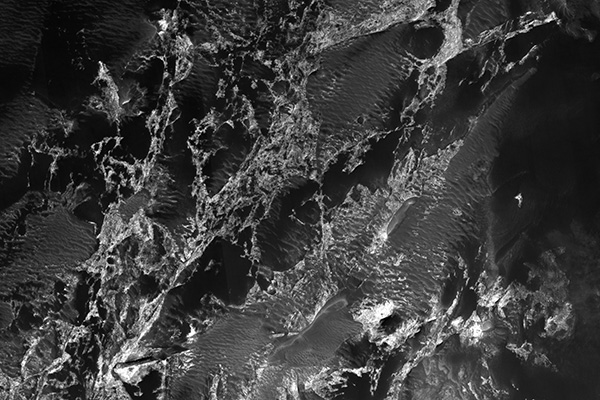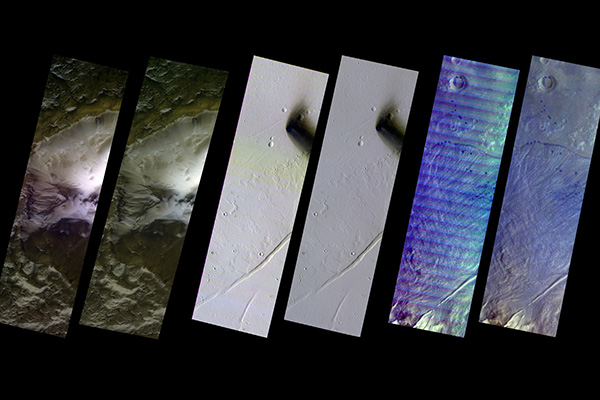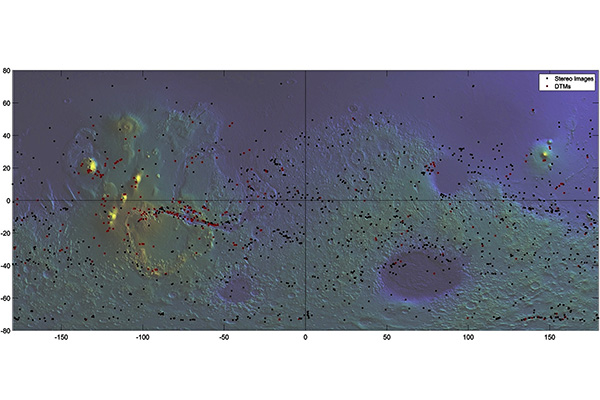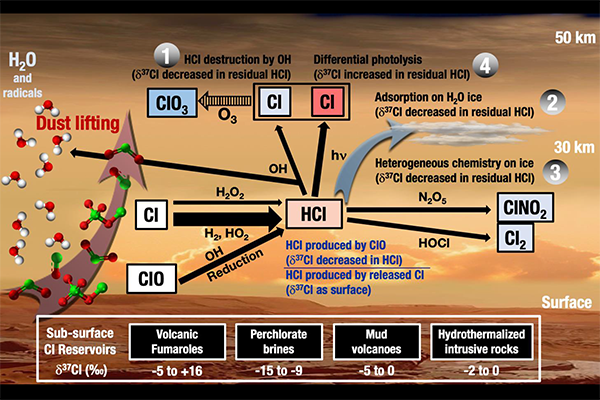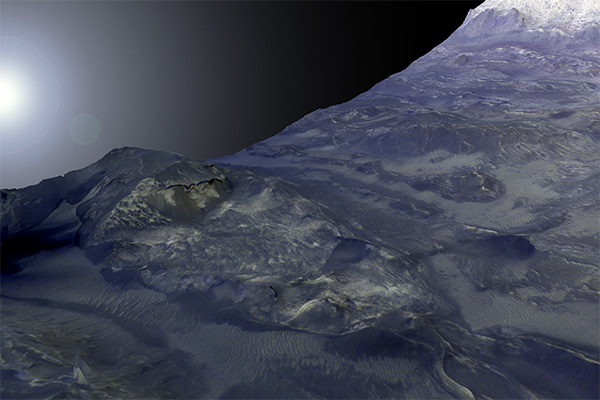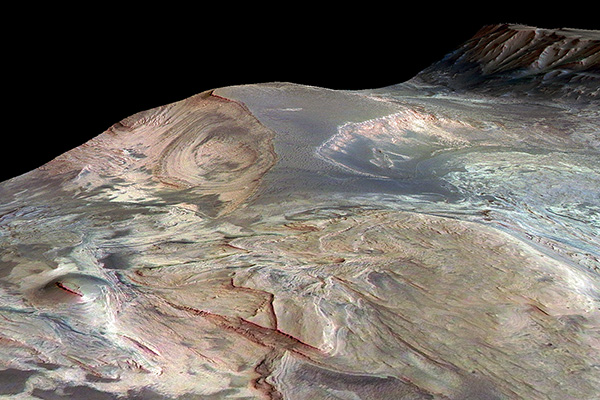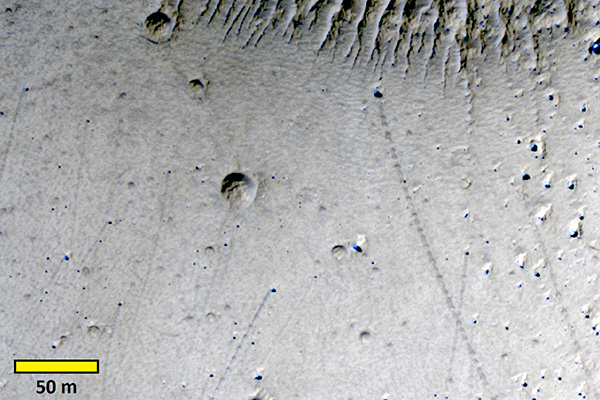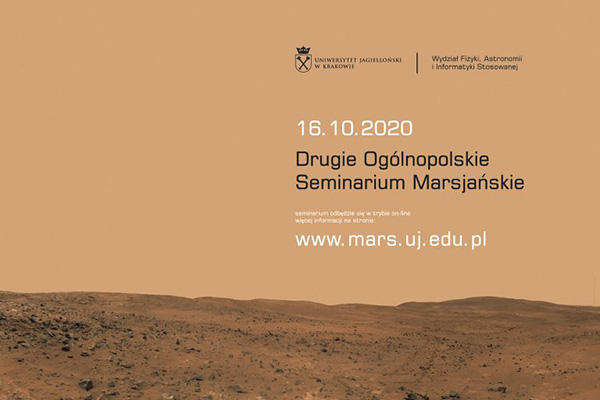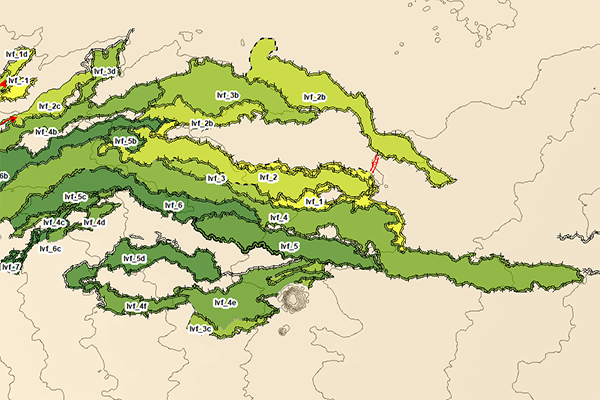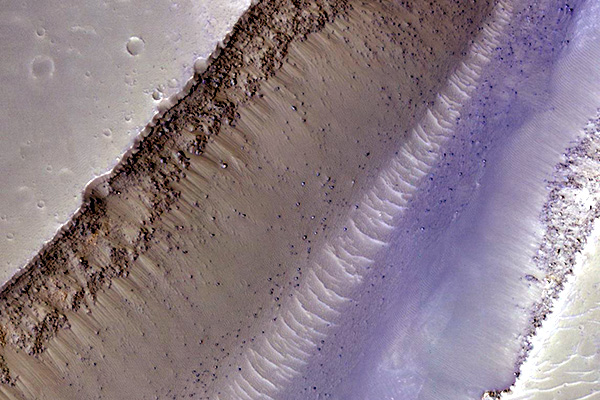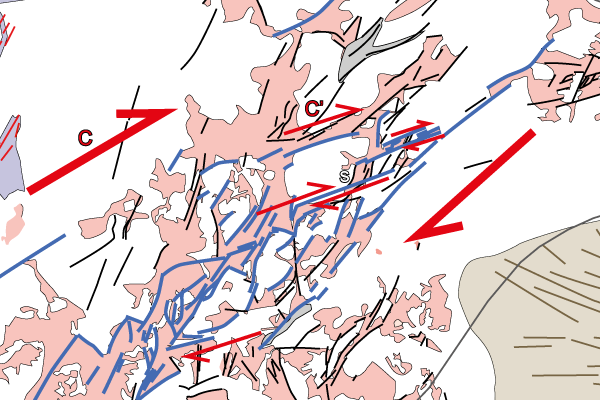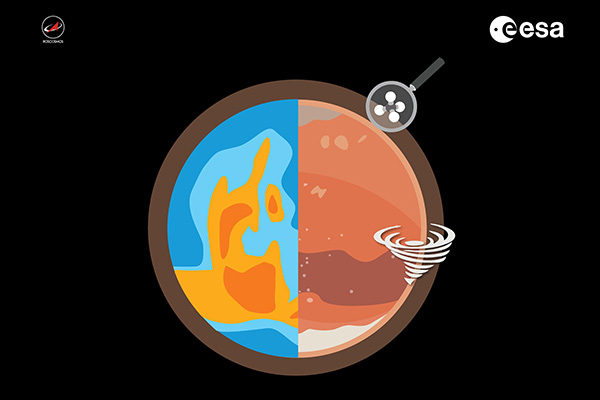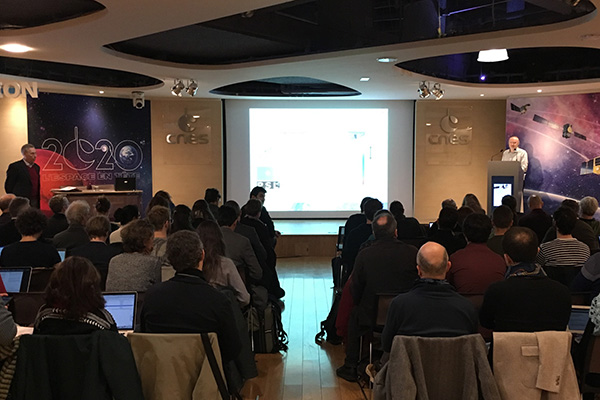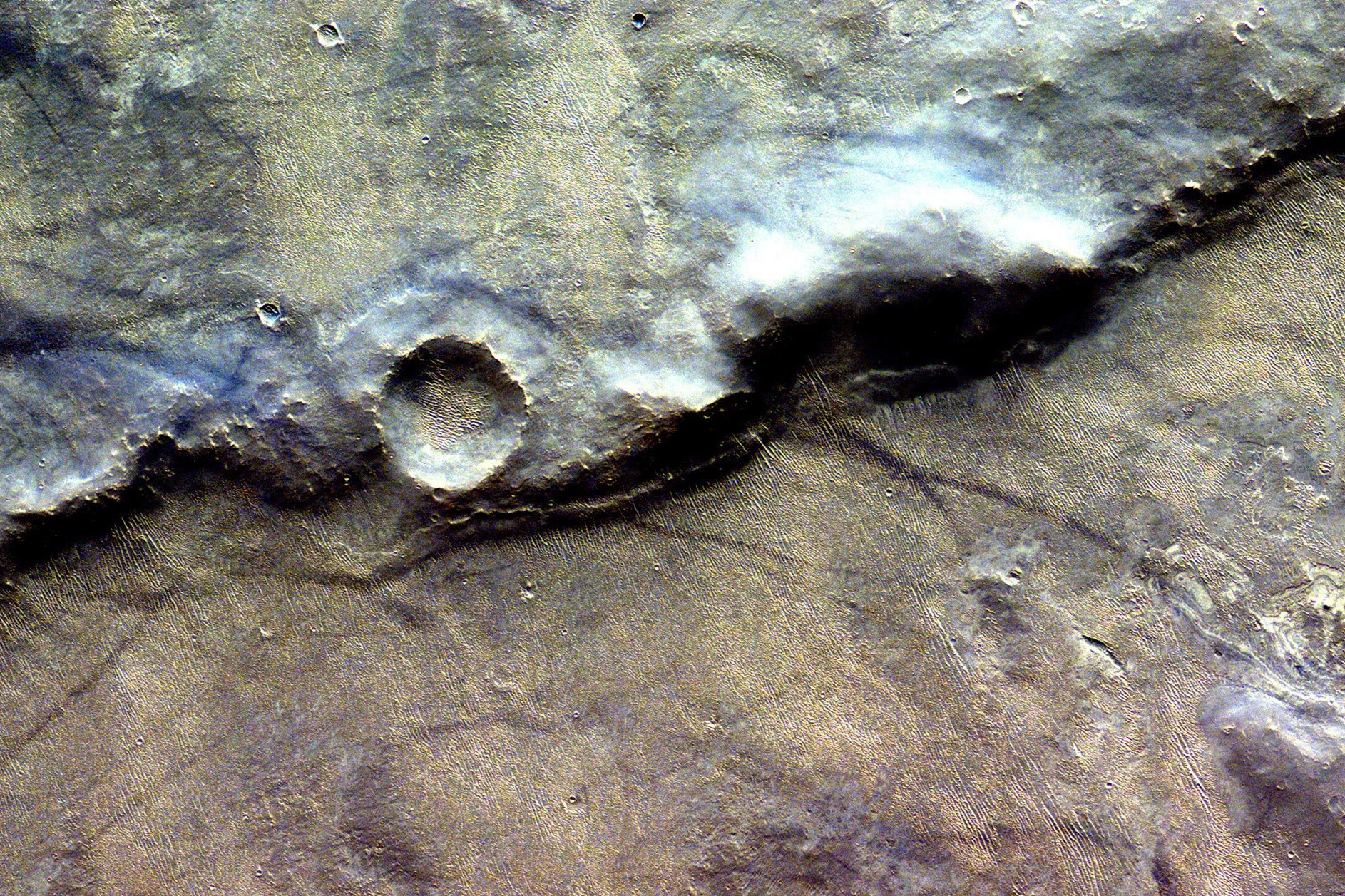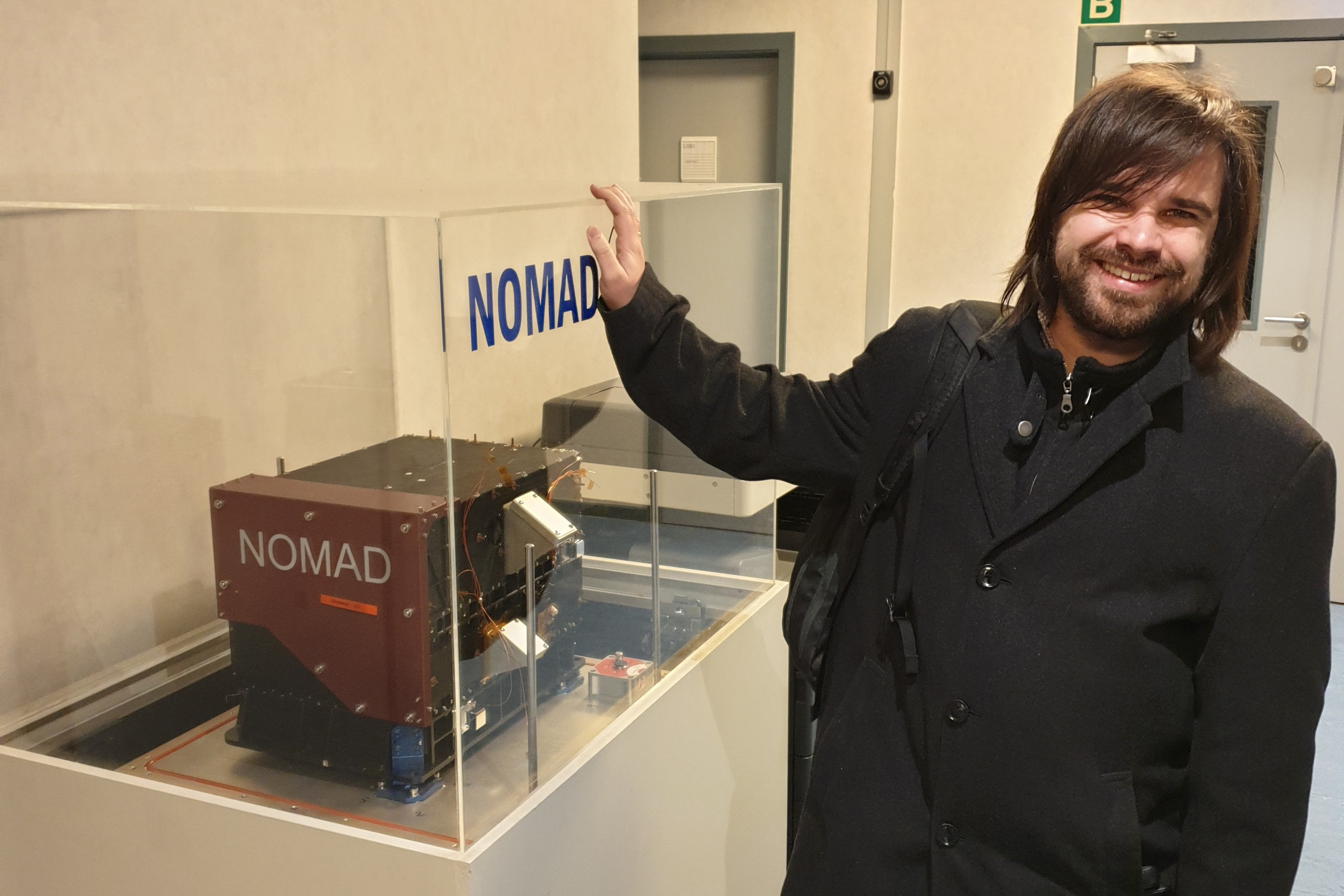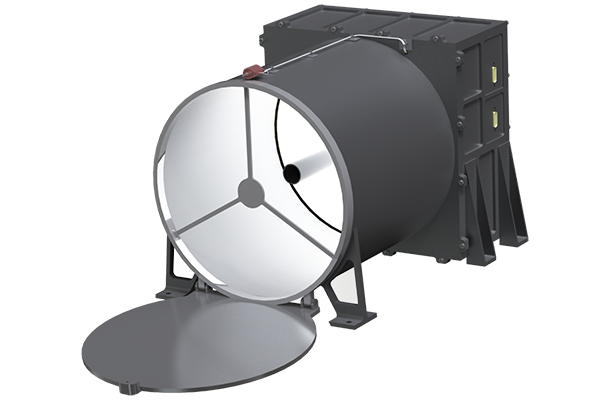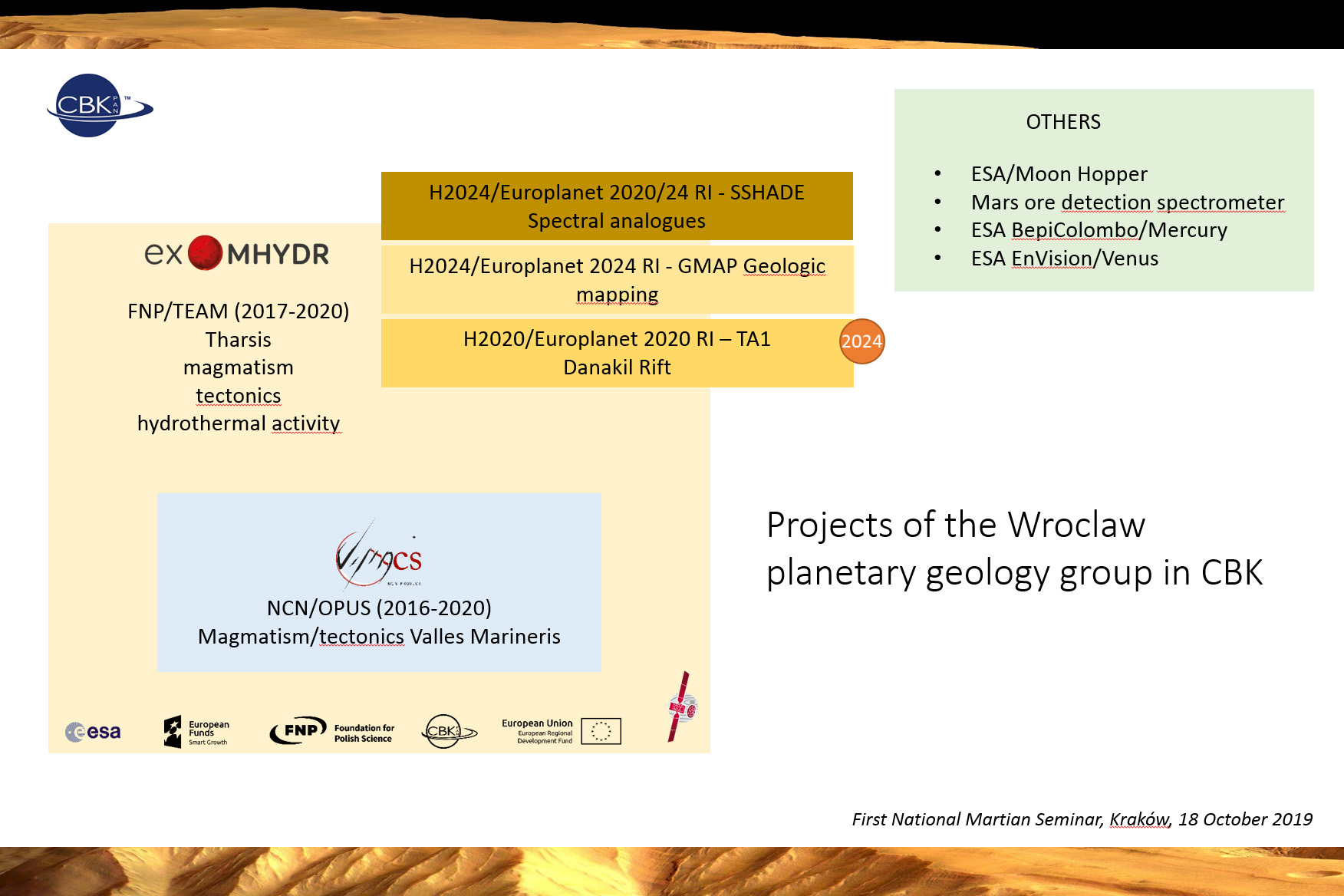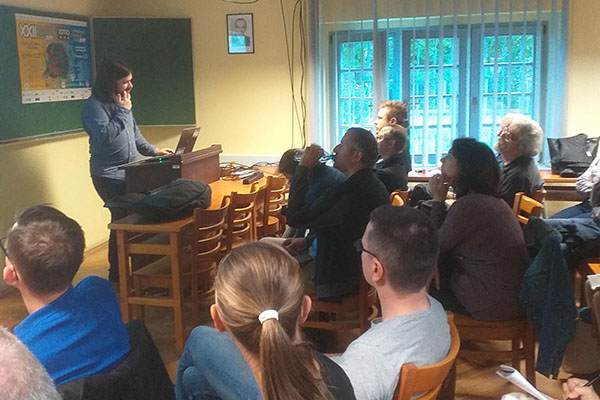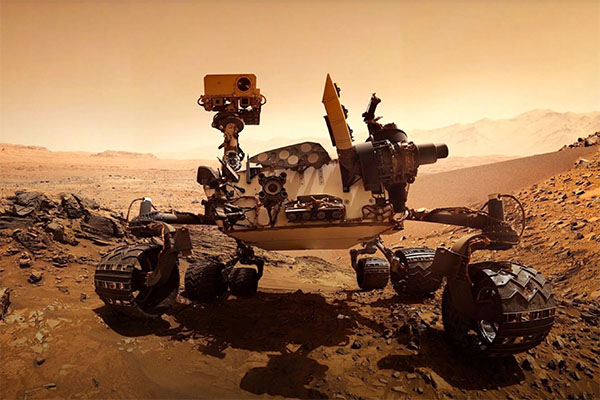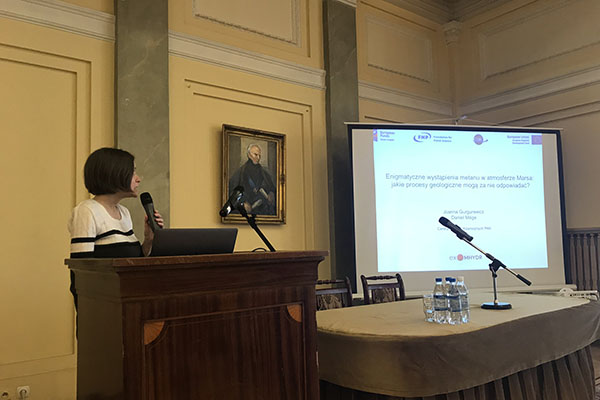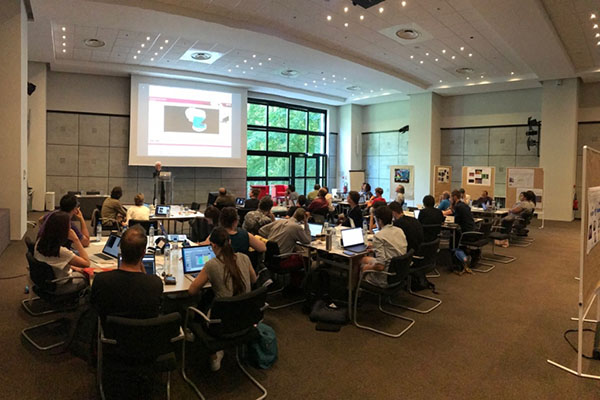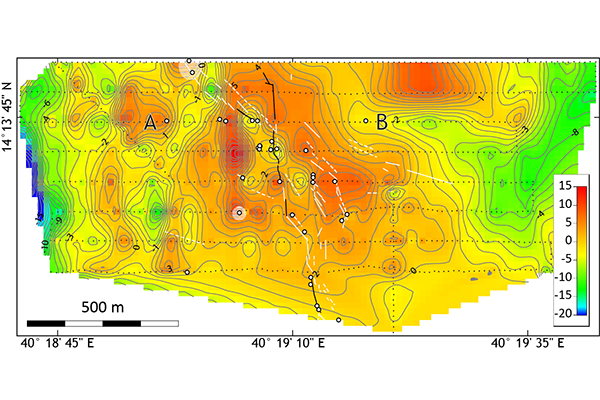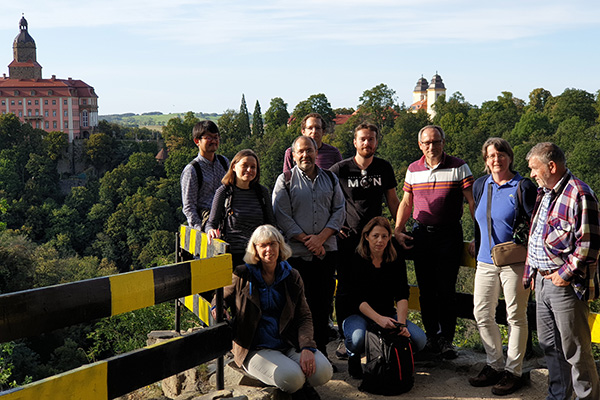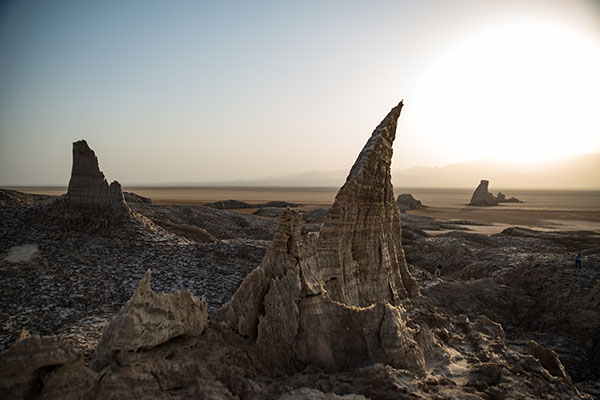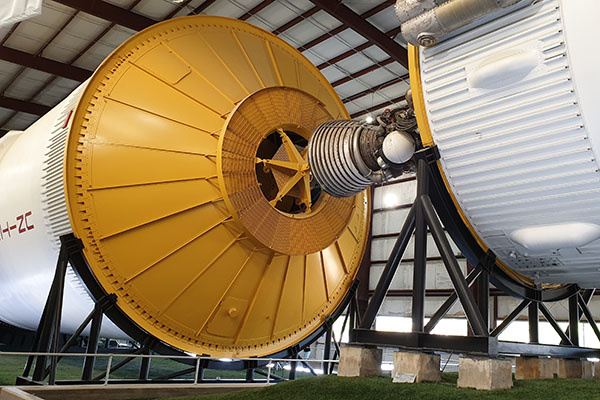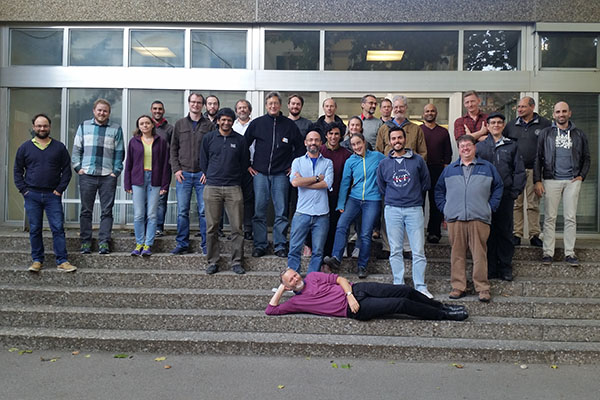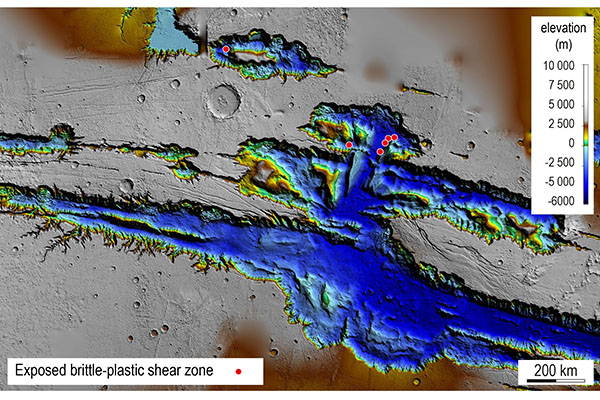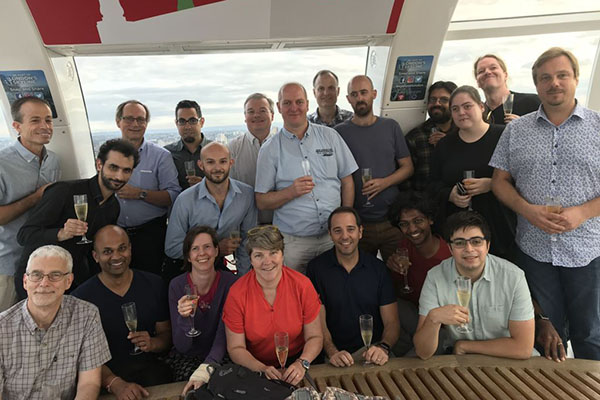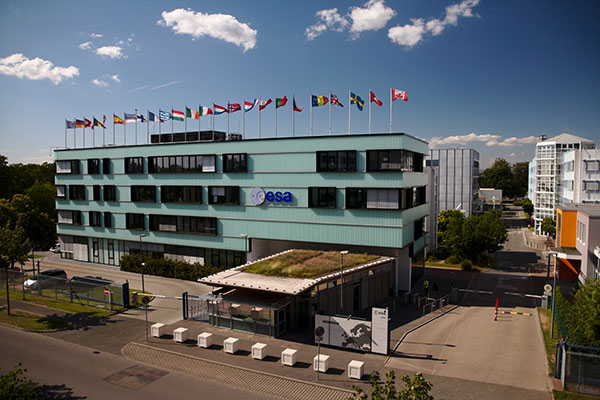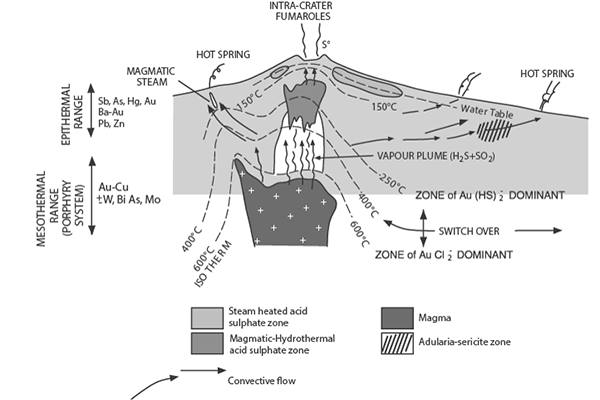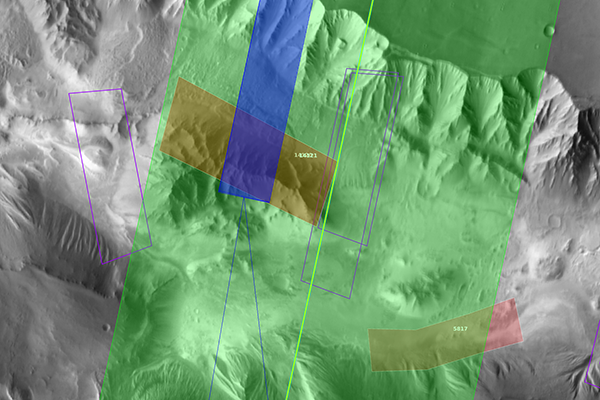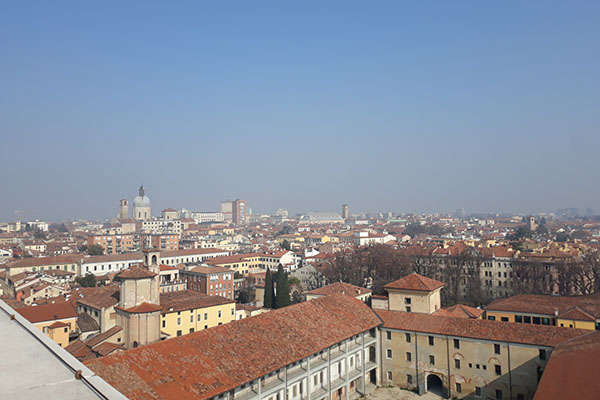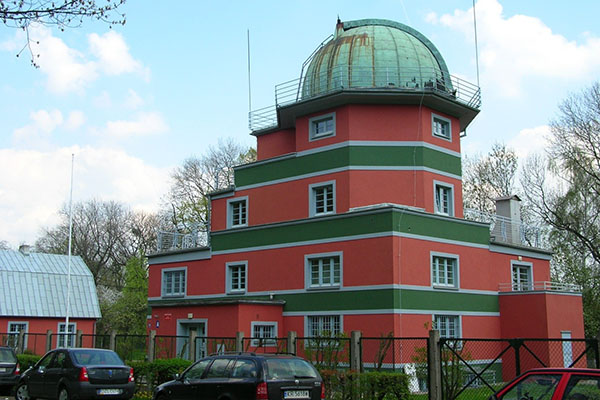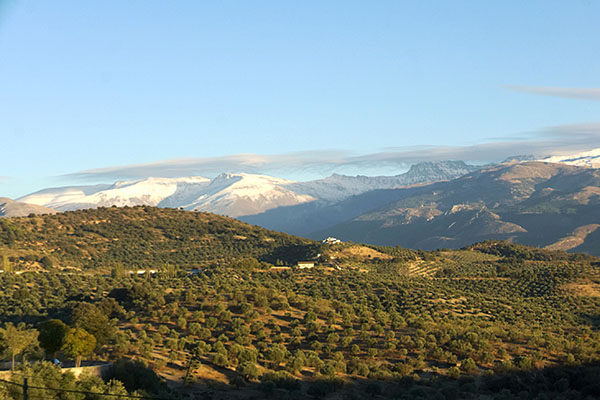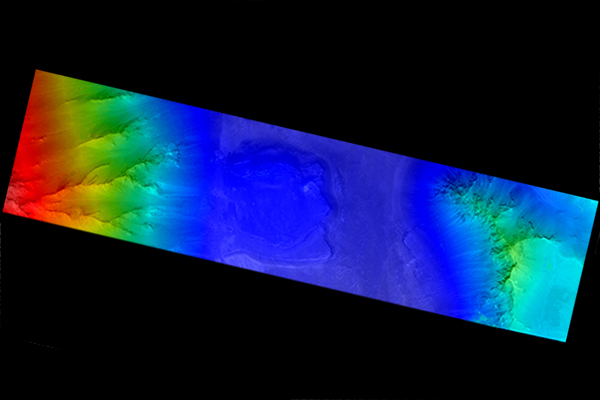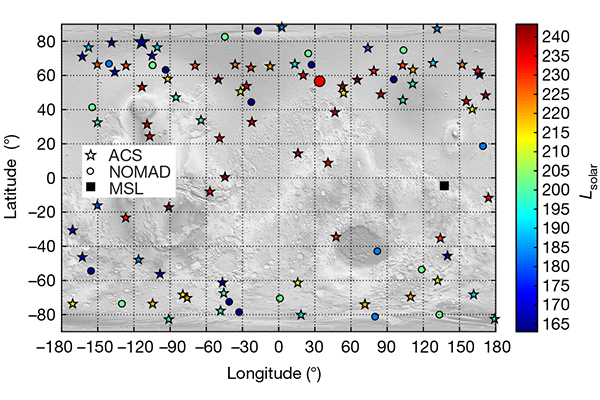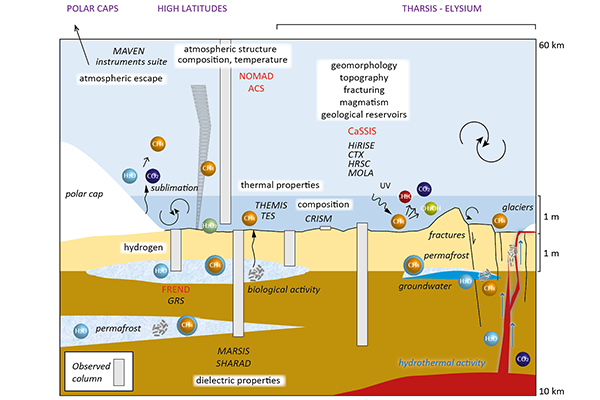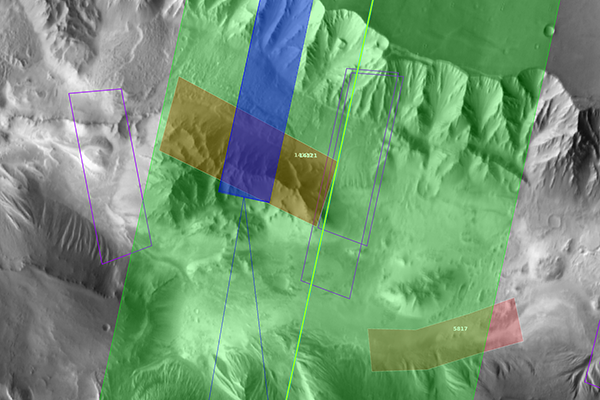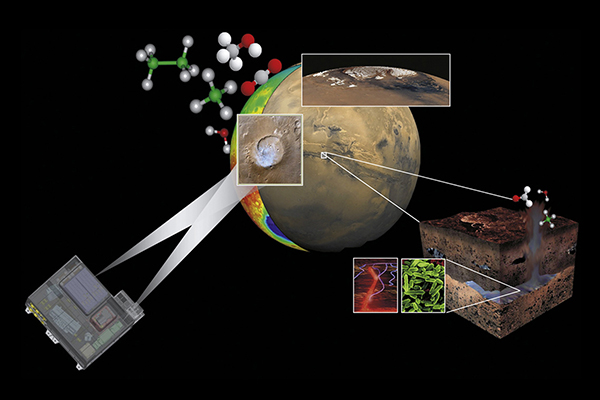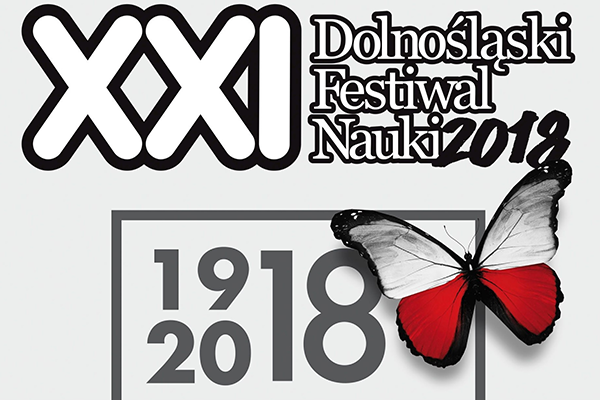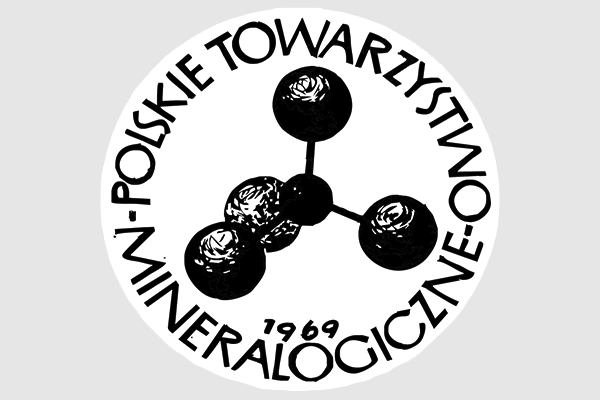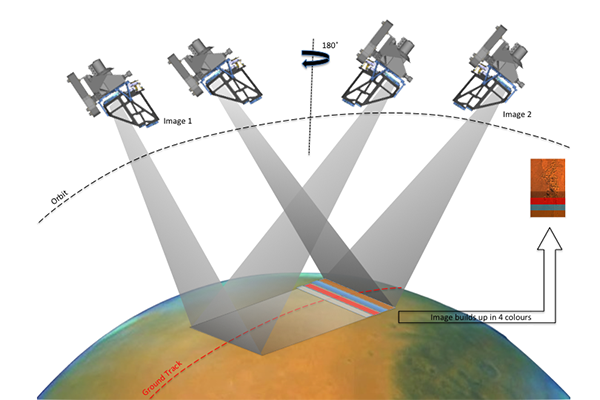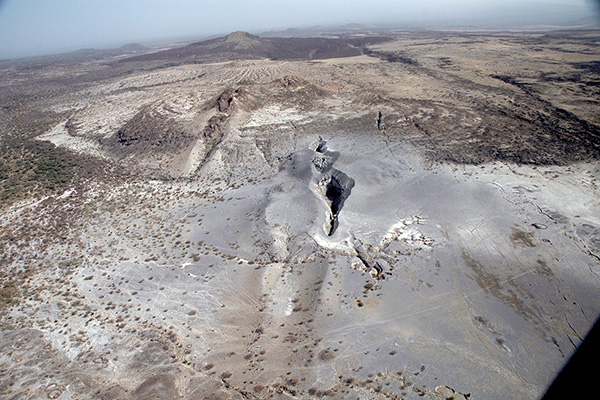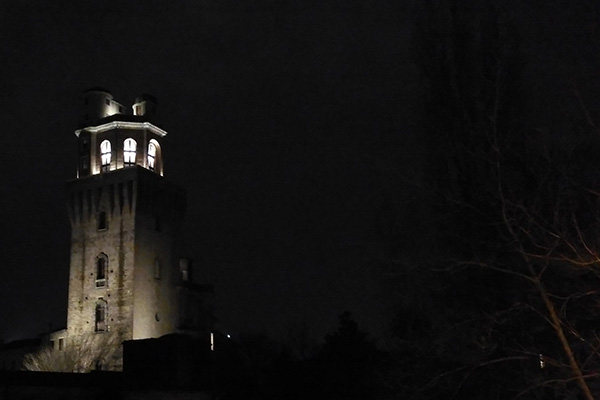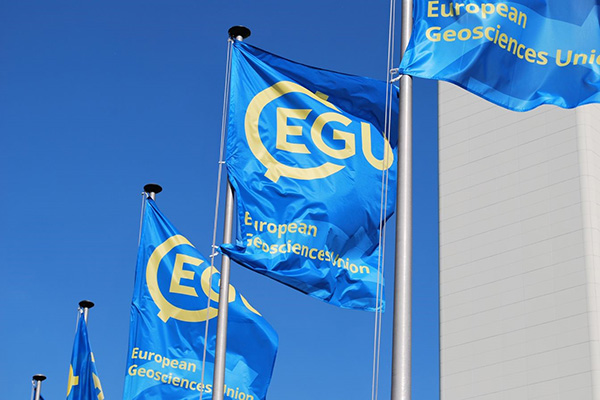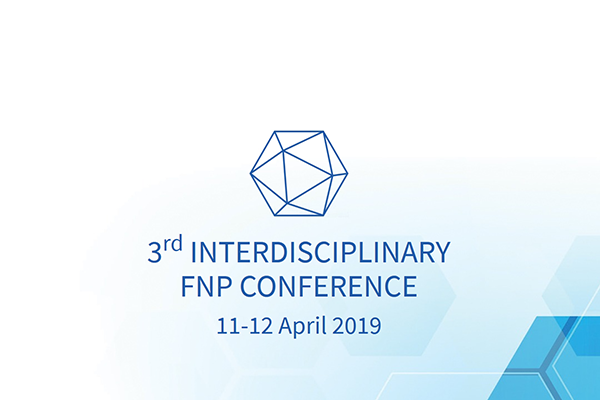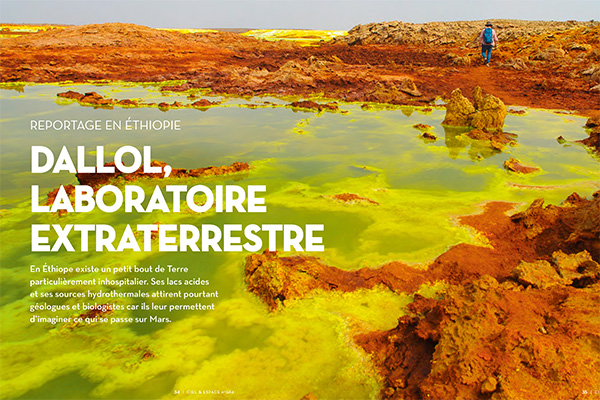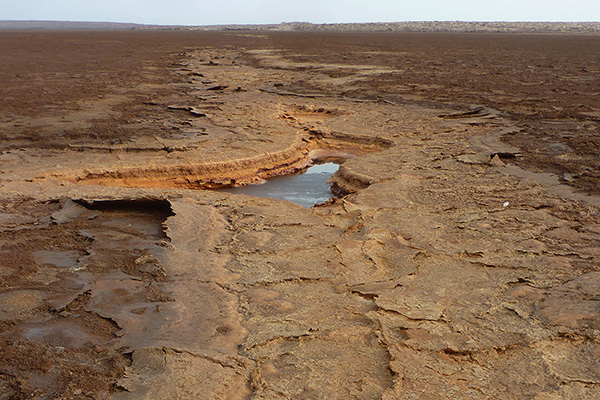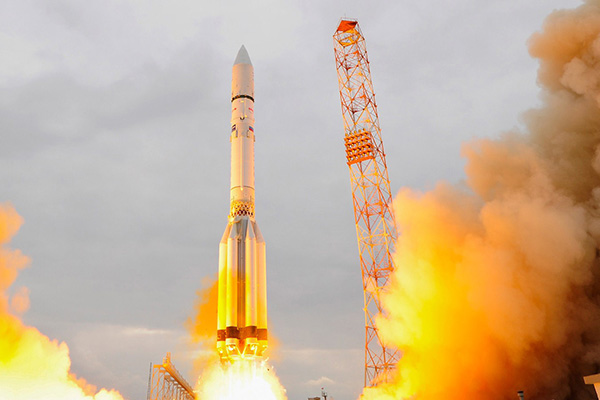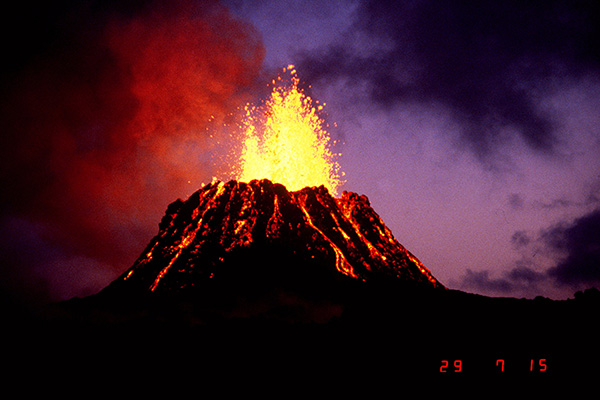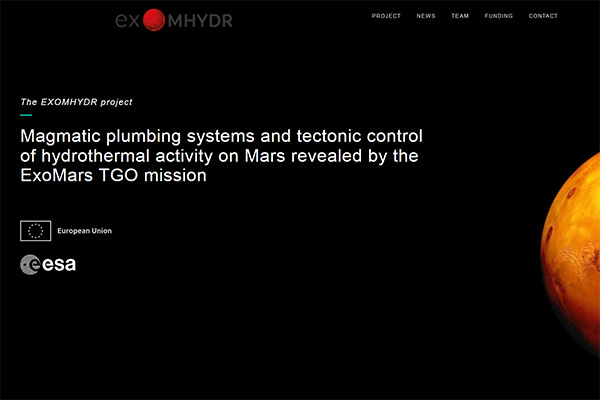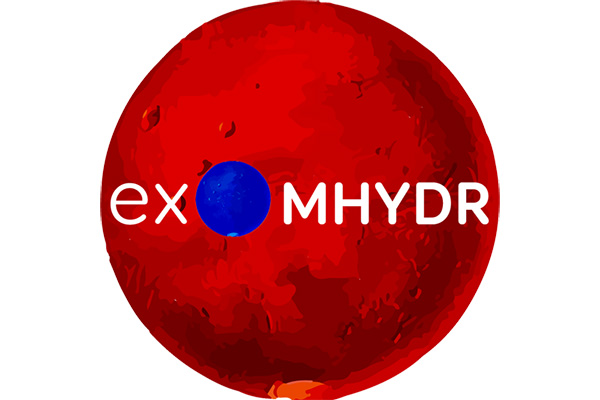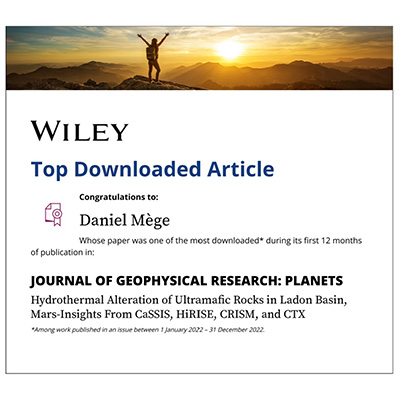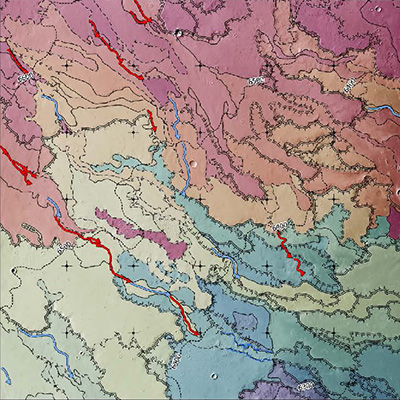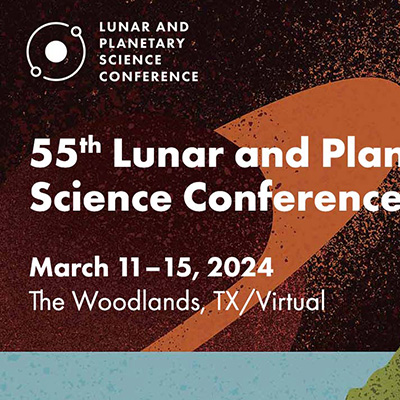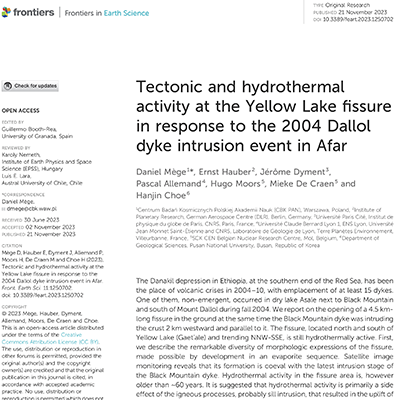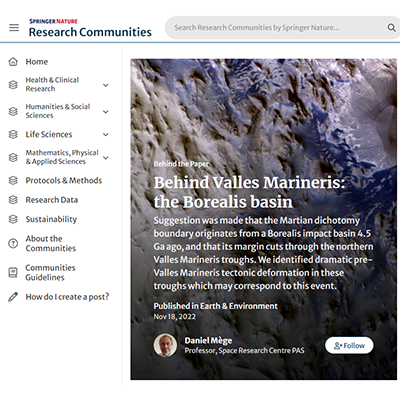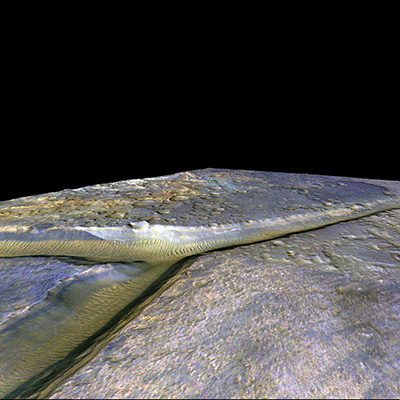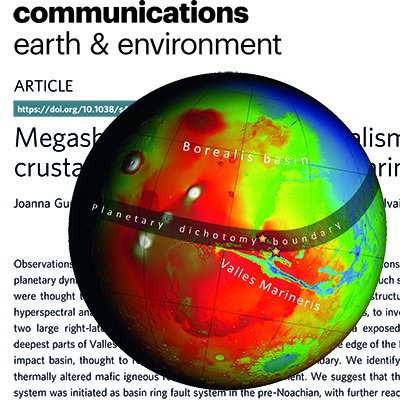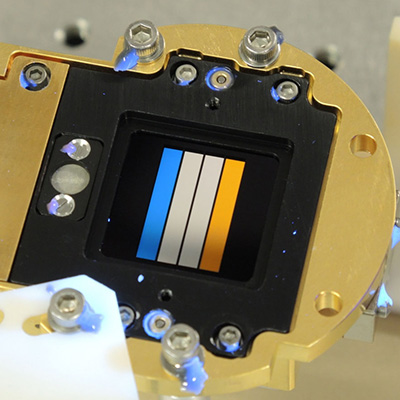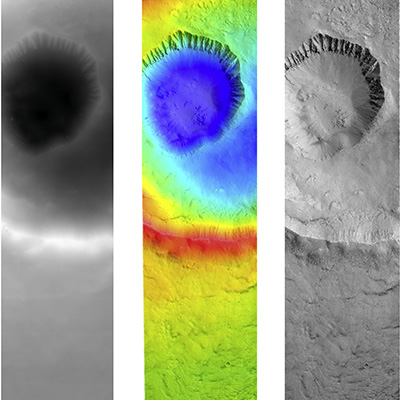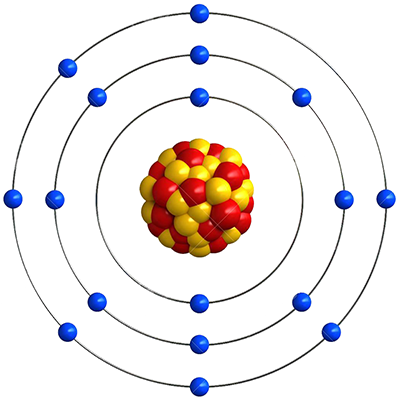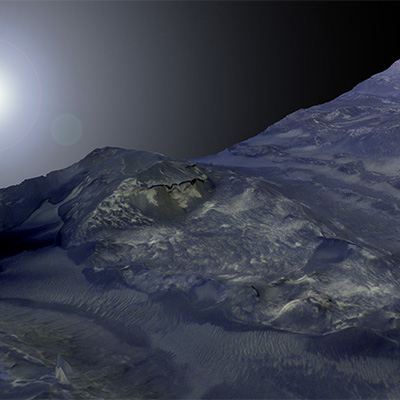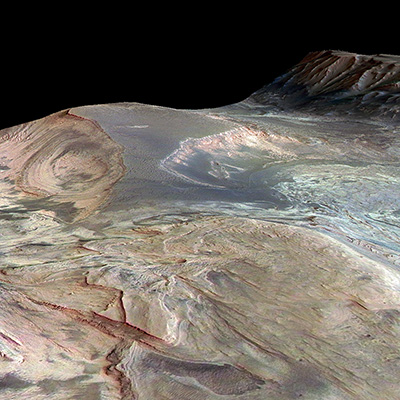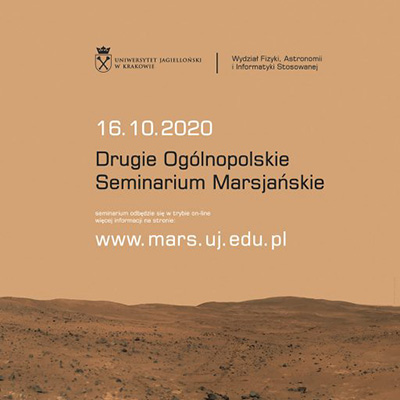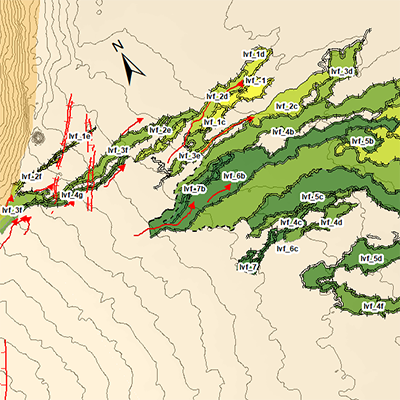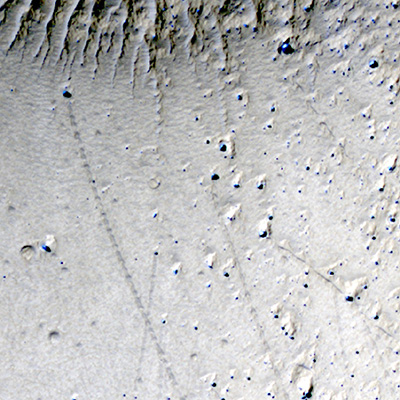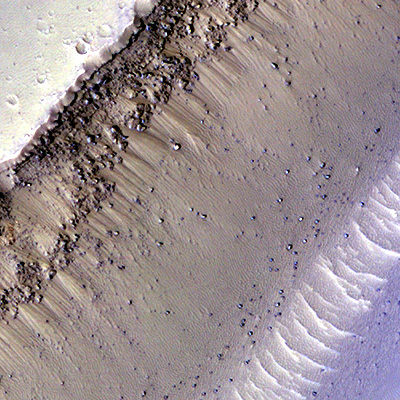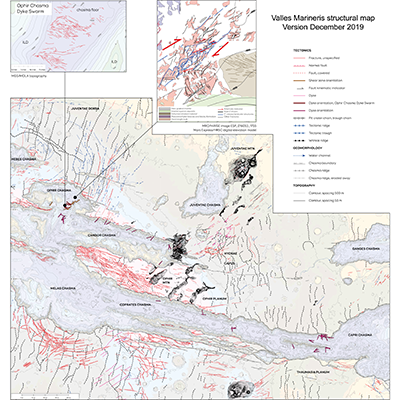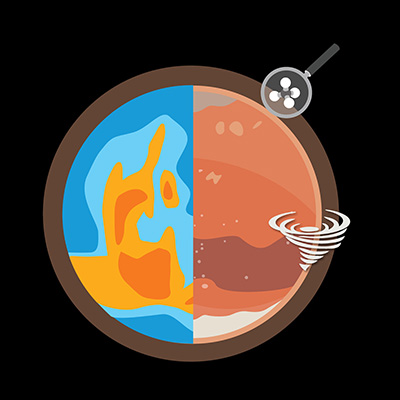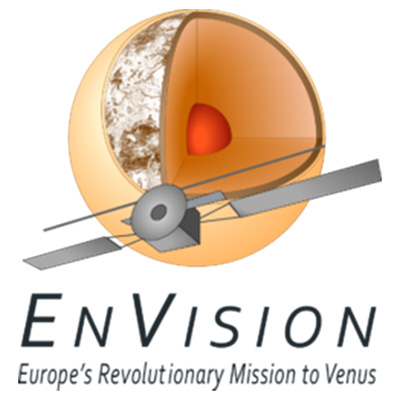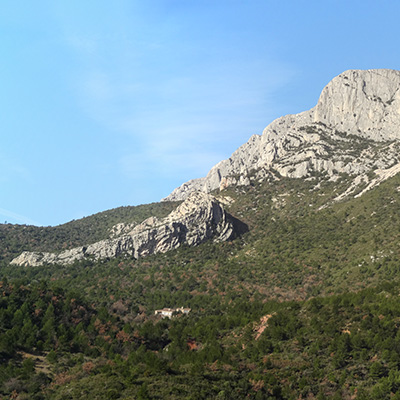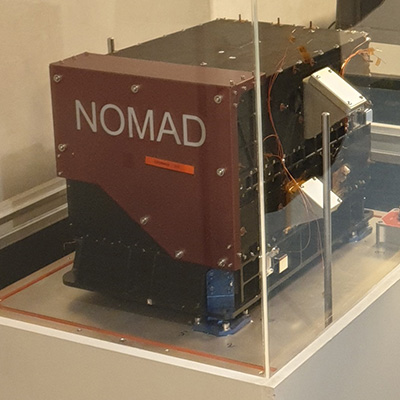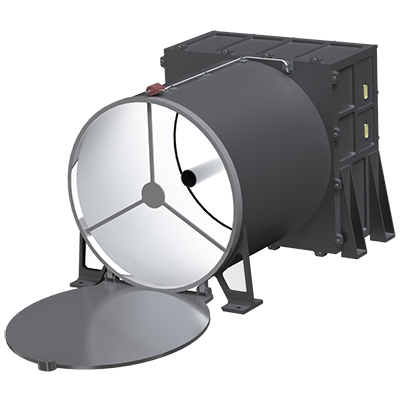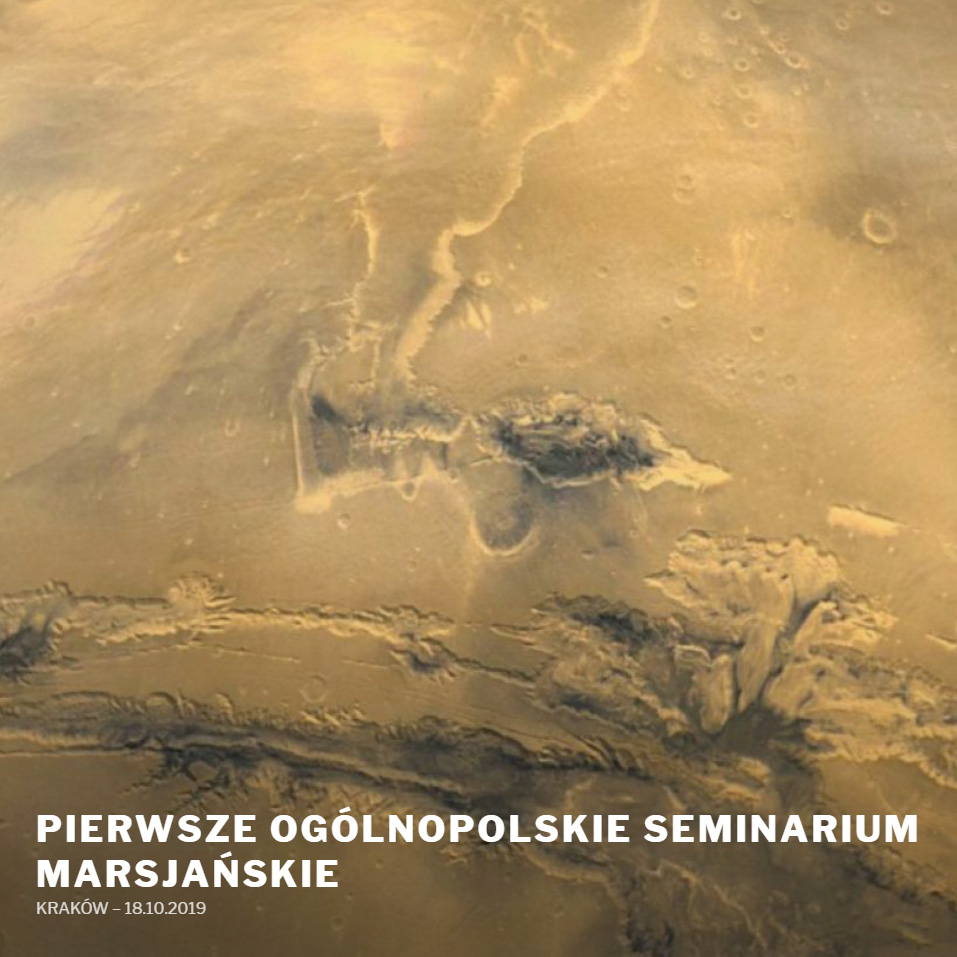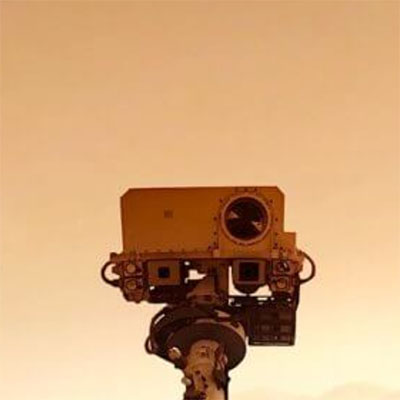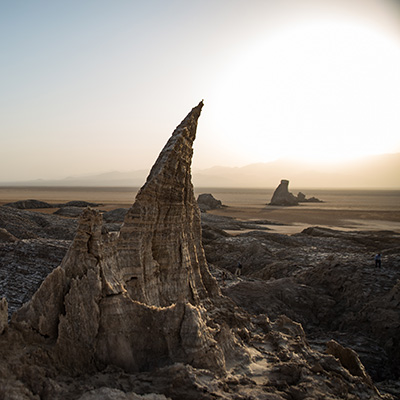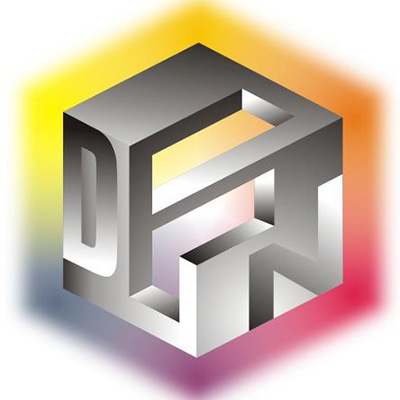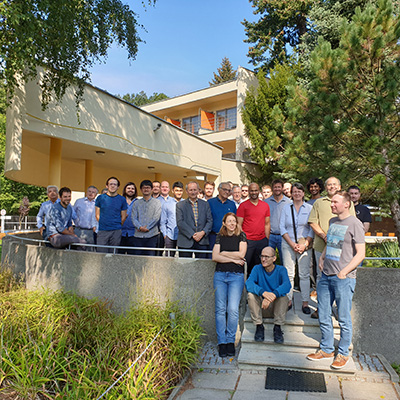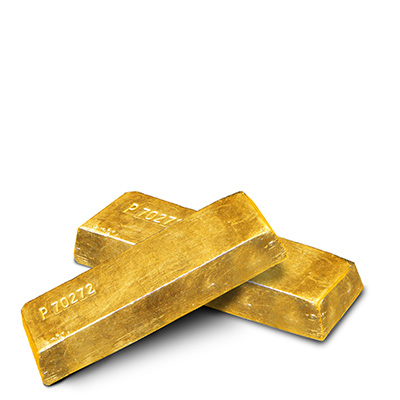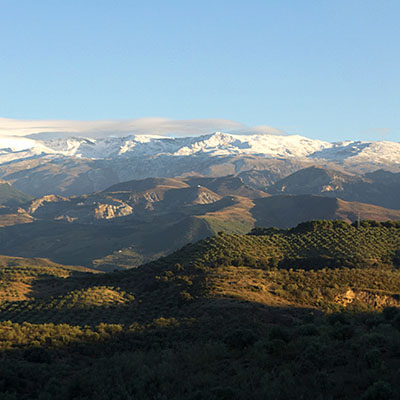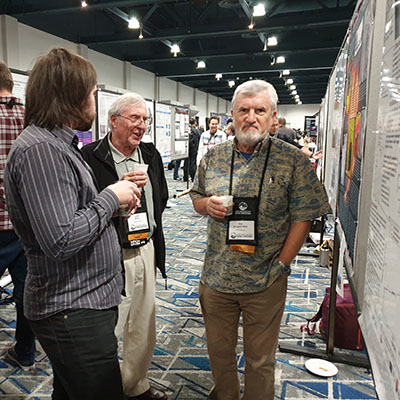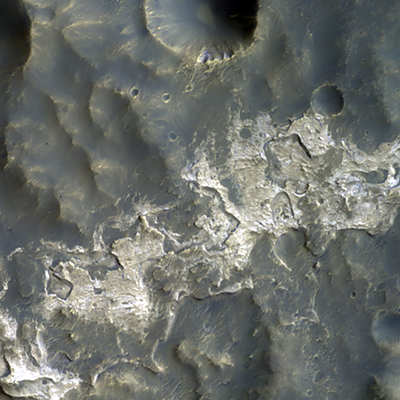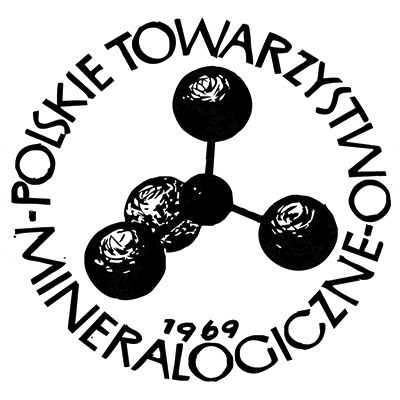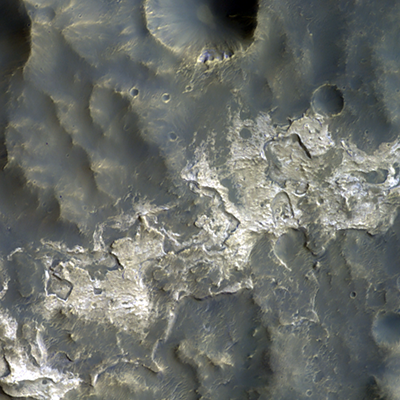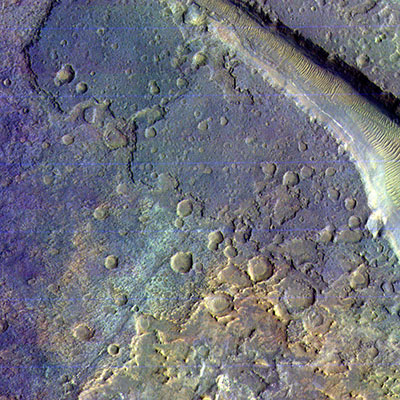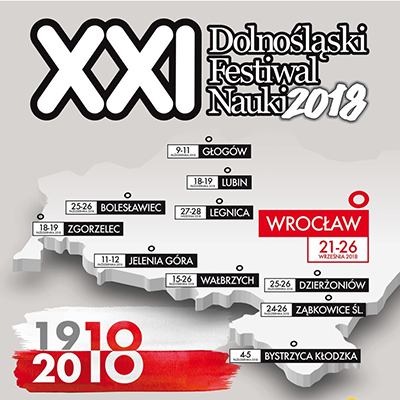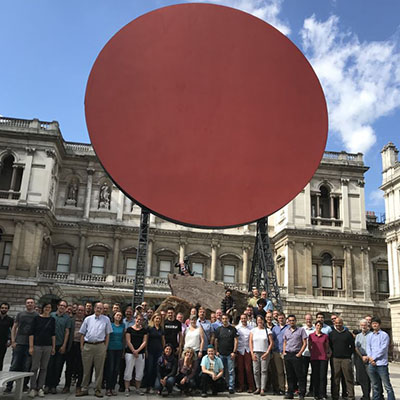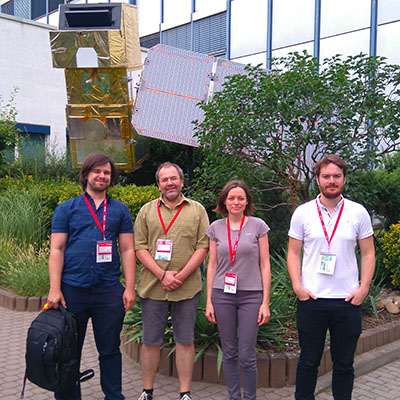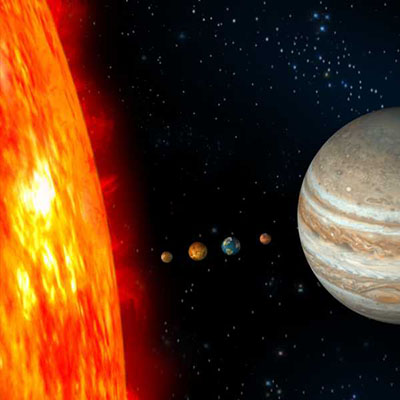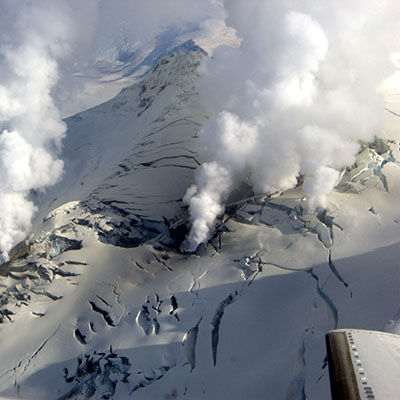Project
The project, which starts in December 2017, is carried out within the framework of European Space Agency's Guest Investigator Programme, and funded by the Operational Programme Smart Growth 2014-2020 of the European Union through the TEAM programme of the Foundation for Polish Science. It will be carried out in constant interaction with the TGO science teams.
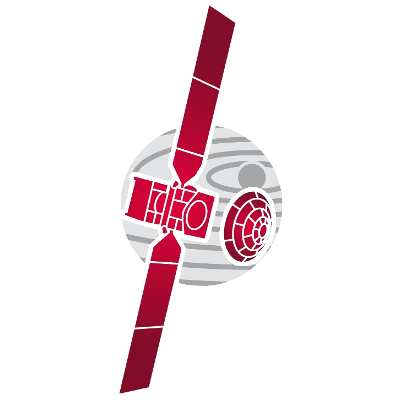
Context
For more than a decade, methane has been detected in the atmosphere of Mars by various instruments and groups. The ESA and IKI ExoMars Trace Gas Orbiter (TGO), launched in March 2016, will investigate the presence of methane and other trace gas sources in the Martian atmosphere starting from May 2018. Methane does not stay longer than days or months in the Martian atmosphere, which implies that if methane is detected, its source must be active. It can be either biological (methanogenic archaea) or geological (serpentinisation of olivine in the Martian crust, hydrothermal activity, outgassing from clathrates or minerals). On Earth, both types are frequently associated.Objectives
The EXOMHYDR project focuses on the potential geologic sources, especially in volcanic regions and some fractured regions above which some strong emissions have been detected in the past. Current emissions will be identified using the NOMAD and ACS spectrometers of TGO, which will probe the atmosphere in a wide range of wavelengths, and will be correlated with possible sources identified using the colour and stereo CaSSIS camera of TGO and other instruments from previous missions (HiRISE, CRISM, HRSC, MOLA, SHARAD etc.). Ancient sources may be identified as well by interpreting the data from CaSSIS and earlier instruments. In addition to a better understanding of the structure of the Martian crust, we expect that this work will also contribute to the debate as to the current existence of microscopic life on Mars preserved from the lethal atmospheric ultraviolet radiations, and to the possibility of much more ancient biological activity. Hydrothermal sites are also sites where mineral/metal resources concentrate on Earth, shedding light into interesting sites for future space mining activities.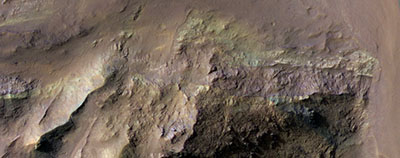
Study area and methods
The project objectives include identification and mapping ancient methane outgassing sites in recent volcanic and tectonic regions of Mars, tracking trace gas emissions measured by NOMAD and ACS to potential geological sources, characterising the geology and physical properties of these sources, and evaluation of volcanic zeolites as potential sources and sinks of atmospheric methane.News
Follow the progress of the project.
Team
Meet the people involved in the project.
Daniel Mège
Project Leader
Daniel is a geologist involved in the tectonics of large igneous provinces on Earth and on the terrestrial planets. He joined the Space Research Centre of the Polish Academy of Sciences in 2015, first in secondment from LPG, University of Nantes, then as full professor. He had earlier been an assistant professor at University of Clermont-Ferrand, then associate professor at University Pierre and Marie Curie, Paris. He is a Guest Investigator of ESA's Trace Gas Orbiter mission to Mars, launched in March 2016.
Pierre-Antoine Tesson
PhD candidate
Pierre-Antoine defended a master's degree in earth and planetary sciences at University of Nantes, France. In the EXOMHYDR project, which he joined in March 2018, he is in charge of (only!) understanding the geologic evolution of the Tharsis bulge using data from ExoMars TGO/CaSSIS and earlier datasets, and constraints from the other ExoMars TGO instruments.
Gaspard Salomon
Master student
Gaspard is a student of the SMEMAG doctoral school at University Paris-Saclay. He joined the EXOMHYDR project in December 2020, and is in charge of investigating the mineraloy of Martian layered deposits using a new spectral unmixing method developed by our collaborator Frédéric Schmidt at University Paris-Saclay.
Joanna Gurgurewicz
Expert in mineralogy
Joanna prepared her PhD in the field of mineralogy, petrology and structural geology at the Space Research Centre, which she defended in 2008. She is a specialist of mineralogy from hyperspectral remote sensing instruments. She joined the project in March 2018.
Luigi Castaldo
Expert in SHARAD radar
Luigi was with us already in a former TEAM project as a postdoc. In the current project, he is hired as Expert in ground-penetrating radar to calibrate and help interpret SHARAD data in some of our study areas. He started in November 2019.
Marta Ciążela
postdoc
Marta defended her PhD in thermal remote sensing at University of Poznan in 2013. She is in charge of studying the thermal variations of the Martian surface that might be related to internal heat release, using Mars Express/PFS and ExoMars TGO/ACS data.
Jakub Ciążela
postdoc
Jakub defended his PhD in February 2018 at Leibniz University of Hannover, on metal migration in the oceanic crust. He participated to the EXOMHYDR project between March 2018 and November 2020, where he was in charge of investigating the hydrothermal ore deposits in volcanic regions of Mars in relation with their magmatic evolution.
Elżbieta Konopka
Administrative manager
Ela is in charge of managing all the administrative aspects of the project.
Kinga Gancarczyk
Financial manager
Kinga is in charge of managing all the financial aspects of the project.
Funding
The project is financed within the framework of the TEAM Programme of FNP
(agreement TEAM/2016-3/20, project POIR.04.04.00-00-3CD8/16)
The TEAM Programme is part of the Grant Project of the Foundation for Polish Science European Funds within the Smart Growth Operational Programme 2014–2020 Priority Axis IV: Increasing the scientific research potential Measure 4.4: Increasing the human potential in the R & D sector.
Project value: 3 495 821,00 PLN / EU grant value: 3 495 821,00 PLN

Contact
If you have any questions about the EXOMHYDR project, please contact us.
Address
EXOMHYDR Project
Space Research Centre, Polish Academy of Sciences
ul. Kopernika 11, 51-622 Wrocław, Poland
e-mail: dmege (at) cbk.waw.pl
